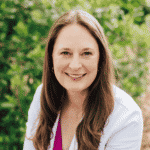The new year can bring mixed emotions. You may be reflecting on disappointments and regrets from the past year AND thinking about dreams and hopes for the future. As the thoughts come and go, remember that you can choose what YOU want to focus on right now. If conceiving is one of your goals for next year, this post will provide new year’s resolutions you can start today to improve the chances that your dream comes true in 2024.
1. Kick habits that harm fertility—smoking, alcohol, marijuana
New Year’s resolutions often start with rethinking and reshaping habits we know aren’t best for us. When you’re trying to conceive, there are some habits that you can let go of now to improve your chances of getting pregnant in 2024. Quitting smoking, vaping, and all forms of tobacco can improve egg quality, sperm quality, and chances of conceiving faster. No amount of marijuana or alcohol while trying to conceive has been proven to be safe, but binge drinking and daily drinking have been associated with poor fertility outcomes, and marijuana use while trying to conceive and in pregnancy have been associated with increased risk of infertility and poor pregnancy outcomes. Think about moderation and what is truly important to you as your thinking through habits you could change in the new year.
2. Start habits that improve fertility—nutrition, exercise, sleep
Trying to conceive can be excellent motivation for improving your overall health. With a focus on better sleep, nutrition, and exercise, you’ll improve your chances for conception in 2024. Top sleep tips include sticking to a routine bedtime and wake time as best as you can, including weekends; making your bedroom as dark, quiet, and restful as possible; and avoiding stimulation like caffeine in the afternoon, a heavy dinner and alcohol at night, and screen time an hour before getting into bed.
For nutrition, focus on less processed and fast food, more fresh fruits and veggies, and cooking at home. For exercise, find a restorative routine you can commit to with low-impact exercise like yoga, walking, and strength training. Too many people worry about exercising while trying to conceive and in pregnancy—talk to your doctor about what’s right for your personal situation. You may need to modify your routine, but you shouldn’t have to stop exercise; movement can be beneficial for both your physical and mental health.
As you’re thinking through habits to kick and start for the new year, be kind to yourself. No one can be “perfect” 100% of the time. Make realistic goals, try your best, and be forgiving if you slip up from time to time. Make healthy choices most of the time, but enjoy life too!
3. Focus on emotional wellness and mental health
One of the most important things you can do while trying to conceive is to focus on your emotional wellness and mental health through the process. It’s amazing if you can conceive quickly on your timeline, but for the one in six couples who struggle to build their family, stress and infertility go together. You cannot eliminate stress, but you CAN find the right stress management tools that work for you. Solo time for reflection with mindfulness, journaling, walks, and reading can be peaceful. Finding connection with others by sharing your journey or feeling with therapy and online support groups can help you feel less isolated. Making time for your self-care and emotional wellness will give you the strength to meet your goals.
4. Take a prenatal vitamin
Your needs change in pregnancy, and taking a prenatal vitamin while trying to conceive and in pregnancy will decrease risk of birth defects like neural tube defects and pregnancy complications like anemia and preterm delivery. Talk to your doctor about which prenatal vitamin and any other preconception recommendations are right for you.
5. Take that next step with fertility testing or treatment
If you’ve been trying to conceive, the new year may be the right time to take the next step. This will be personal for you, but next steps can be getting fertility testing, making an appointment with a reproductive endocrinologist or fertility doctor, or getting a second opinion. It’s important to not make assumptions—previous fertility does mean current fertility, so get testing to not miss anything that could impact your chances of conceiving. Also, don’t make assumptions about meeting with a new doctor. Most OBGYNs do not have fertility training, seeing a reproductive endocrinologist does not mean you have to do IVF, and a new doctor may provide a new perspective on your options.
The new year can be a new opportunity for you, especially if your goal is to conceive in 2024. Think through habits you can change to improve your reproductive health, focus on your mental well-being, and don’t make assumptions about testing and consults that could help you meet your goals!
Resources
Alcohol and Fertility
Dr. Lora Shahine
https://youtu.be/ytErsTDWIiY?si=HGWLzQfOMJhoJd_2
Sleep and Fertility
Dr. Lora Shahine
https://youtu.be/PWT_bWuAHZg?si=rKqqhOCMIm6Hklxf
Marijuana and Fertility
Dr. Lora Shahine
https://youtu.be/n62gi8s3_Ow?si=9qfyCdqu0IaiW1aq
https://youtu.be/qRVUSapG3qQ?si=12XAX8AGYJa7_MTe
Nutrition and Fertility
Dr. Lora Shahine
https://youtu.be/Lxwv0VLZyEk?si=BxymbTJKpU1wn0zb
https://youtu.be/tBJo9ggmdzA?si=ay27qHmHea-tr4kj
https://youtu.be/Ch86VS6yxPE?si=8NdFAuZlL283-Gvg
Exercise and Fertility
Dr. Lora Shahine
https://youtu.be/8IUSj6awa40?si=Ce3B6vP_W45tHueb
Prenatal Vitamins
Dr. Lora Shahine
https://youtu.be/VlXq5RuKTAs?si=qf-Pju0fGUsQvilh
Dr. Lora Shahine

Dr. Lora Shahine, reproductive endocrinologist at Pacific NW Fertility and clinical faculty at the University of Washington in Seattle, completed her fellowship in reproductive endocrinology at Stanford University and residency in obstetrics and gynecology at the University of California in San Francisco. She is dedicated to educating and advocating for increased awareness of infertility, miscarriage, and the impact on environmental toxins on health through an active social media presence, teaching, clinical research, her books including best-selling, Not Broken: An Approachable Guide to Miscarriage and Recurrent Pregnancy Loss, and her podcast, Baby or Bust. Find her at drlorashahine.com and on Instagram, YouTube, TikTok, and Twitter.







